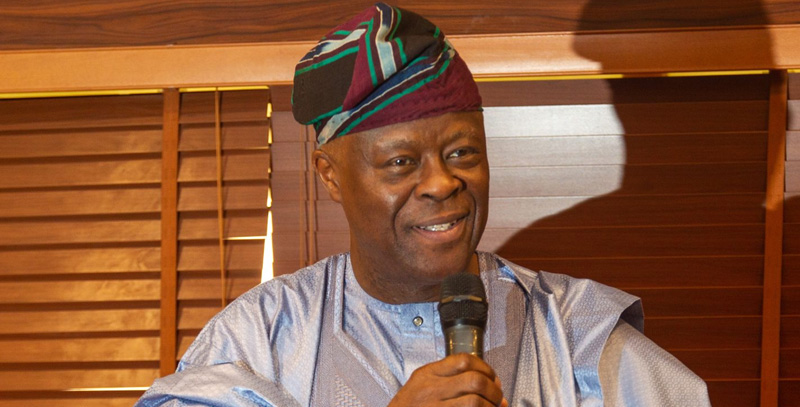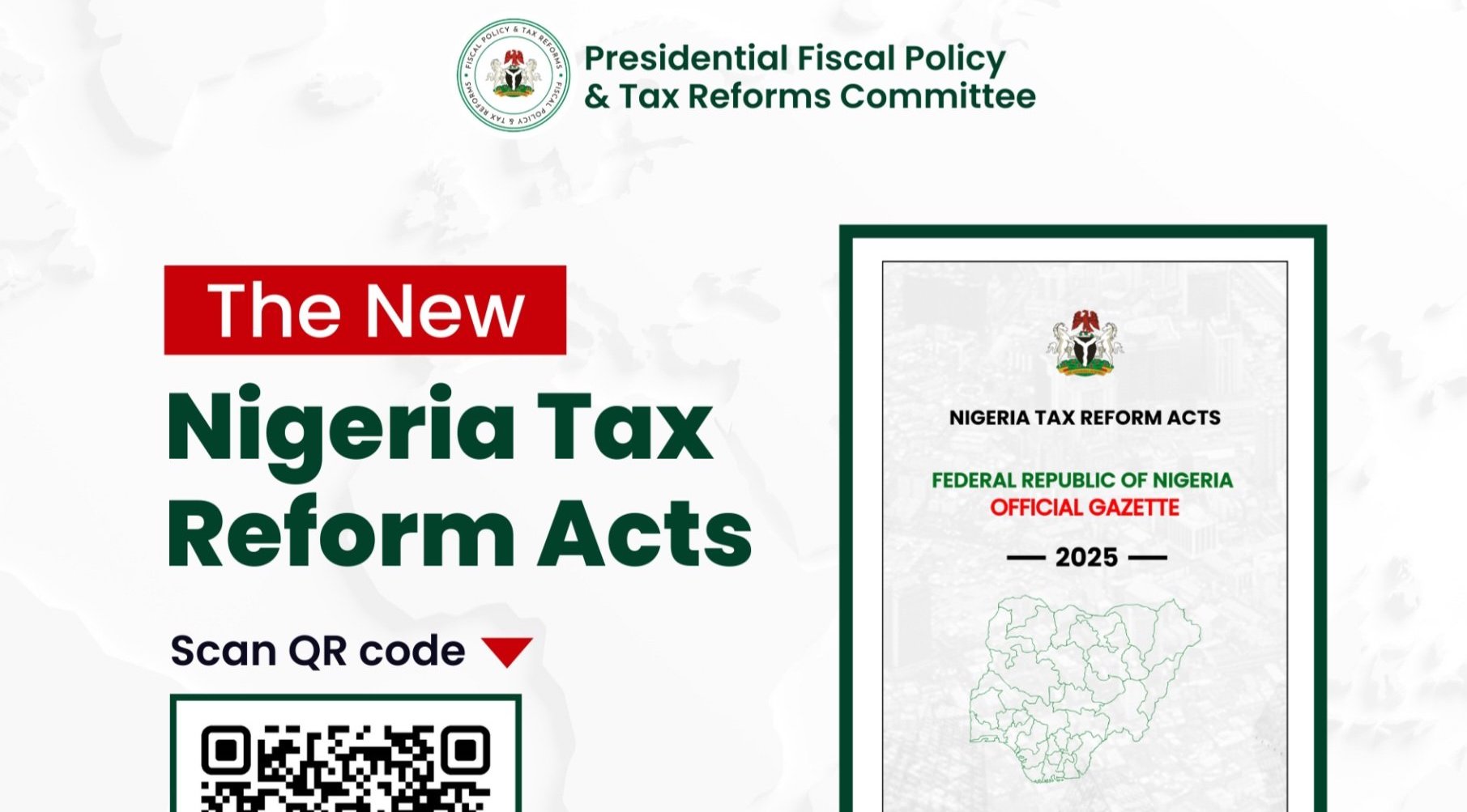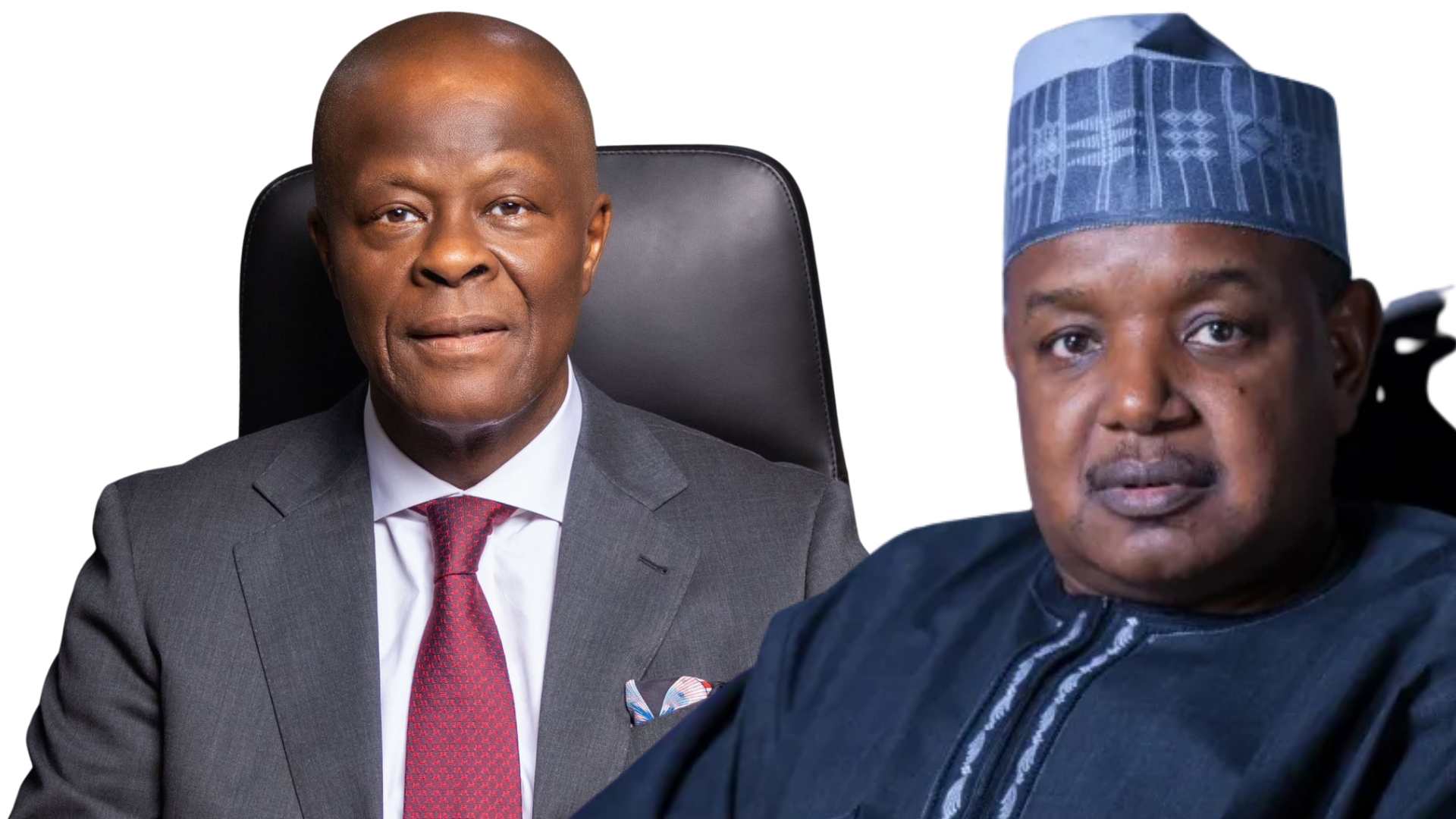About 70 per cent of Nigerians are engaged in agriculture in one form or the other, with women and girls in the overwhelming majority of this number. However, only 10 per cent of them own the land they farm, making life difficult and uncertain. Seun Akioye met some women farmers and they shared their pains and gains
Comfort Sunday rose from where she sat since the rains stopped, between two heaps of freshly harvested groundnuts; she shook off the sand under her and smiled. It was a smile of resignation, one that showed she had accepted her fate. “The land is dead,” she said for the umpteenth time. “If you put anything into the soil now and you are not careful, you won’t even see your money or any profit,” she said. Again, she smiled.
At 57 years, Comfort is strong; she seemed made for the type of work she does. Following a string of family tragedies, beginning with the loss of her father and ending with the brutal death of her husband 10 years ago, she stood alone, fought alone and now she seems to have bent the curve.
Today, Comfort is far from the broken woman who endured the news of her husband’s demise in the line of duty. An Inspector of Police, he had much going for him and his wife, but that dream was cut short by a ‘freak’ accident. He left almost nothing for his family, except the farm which Comfort had since ploughed alone.
“I have always been a farmer. I grew up in the family of farmers, and this is what I have always done even when my husband was alive. I am very proud to be a farmer. In the last 20 years, I’ve planted beans, groundnut and sometimes rice,” Comfort began.
She was sitting inside her nearly two acres of farmland in Jiwa, a rural community on the outskirts of Nigeria’s federal capital Abuja. In Jiwa, nearly half of the population are farmers, who have farmed the same land for decades until it was no longer profitable. In desperation, the women of Jiwa began to apply excessive doses of fertilisers to the soil until the prices were out of their reach. Without further option, they continued to plough whatever remained of the soil.
“Twenty years ago, this land was fertile,” Comfort said. A bag of freshly harvested groundnuts lay by her side. A few metres away, about six women were also harvesting, but as the sun began to rise, they moved under the shade of a tree, slowing down the work.
“You didn’t need to spend much to gain a lot from the land then, but now the land is sick, and we can’t even afford to buy fertilisers anymore. Even though we are willing to get a loan, we cannot, and those banks that offered us loans had high interest rates that we cannot afford,” she said.
Land for women farmers is a big problem
About 70 per cent of Nigerians are employed in agriculture and women make up most of that workforce, especially as smallholder farmers. However, barely 10 per cent of women farmers own the land they farm even though they make up about 80 per cent of the country’s agriculture workforce.
“Nobody will sell land to you as a woman,” Comfort said. She had just finished giving instructions to her workers. The second bag of groundnuts was a quarter gone now. “I was hiring land before my husband bought this one. Even after he died, they tried to take it from me; we even went to court over it.”
The Ministry of Women Affairs recognised this problem and launched the National Women’s Economic Policy and Action Plan (WEE). It noted rather sadly: “Only one in five landowners in Nigeria is female. This accounts for only 10 per cent of all landowners in Nigeria. Women farmers also produce an average of 30 per cent less than their male counterparts.
“The scale of women’s engagement in the sector suggests that any initiative to empower Nigerian women and make them productive members of the economy must consider the agriculture sector.”
There are no conventions or laws that prevent women from land ownership, and international and regional instruments Nigeria has signed/ratified require equal property and inheritance rights, like the Convention on the Elimination of All Forms of Discrimination Against Women (CEDAW), which Nigeria ratified in 1985, and the Maputo Protocol (Protocol on the Rights of Women in Africa), ratified in 2004.
But Nigerian women have largely been confronted by customary law and, even though the Supreme Court has made some landmark judgements against customary discrimination, like in Ukeje v Ukeje (Supreme Court, 11 April 2014), little appears to have changed.
Comfort was a victim. When her father died, she made a deal, one that struck at her pride and left her ego in the gutters. “My father’s farm was given to my brother. So, I made a deal with him. I had to appeal for a small piece of land to farm, from my father’s farm that I was cultivating before he died,” she said.
But she owns her land now, with all the advantages. “I can do my work without any disturbance. There is a big difference between having land and renting one,” she said with her iconic smile. But not all the farmers in Jiwa are that fortunate. Others would have to move their farms after they have harvested the groundnuts because the owners of the land need it, or they have defaulted on payment of dues on the land, a situation which happens often and through no fault of theirs.
Bridget Joshua is one of them. For two days, she has been harvesting her groundnuts with the help of four other women farmers. The work must be finished today so they can move to the next farm to help with the harvest.
“This is how we do it since we cannot afford to pay workers,” she said. Bridget, 36 years and mother to six children, was sitting inside her farm. While she harvested her groundnuts, her maize stood in the field, half erect and yellow. She looked at what remained of her field of maize with a sad look and shook her head. “My maize is gone, they didn’t do well, I didn’t have money to buy fertiliser so this is how they are,” a quiet resignation in her tone.
Like Comfort, Bridget grew up as a farmer. Along with her husband, they had three acres of tired soil where they planted groundnut, maize, potato and beans. “I’m removing the groundnut to plant beans and that would be my last farming because the owner of the land wants to use it for poultry. I will have to find another land to rent for next season.”
All her hopes are hinged on getting five bags of groundnuts and selling them for good profit. She had borrowed a high interest loan to plant – as conventional banks wouldn’t give her a loan – and if she defaulted all her produce would be seized by the bank.
“I don’t have a choice,” Bridget said as she wrung her hands together and showed them to heaven. “Women farmers have many problems, this land is one of them. I have been given a quit notice for next year and I don’t know what to do. The land is tired, but we can’t stop farming because we have nothing else to do.”
The four women agreed with her. Yossi Edward, Janet Innocent, Christina Joseph and Mimik Adama all have their fair share of pain and gain in the agricultural sector. None of them owned their lands, but unlike Bridget, they still had the tenancy to their farms. At least for now. But they all murmured at how life is nasty and brutish for women farmers and how they barely made ends meet.
Just a little loan
Comfort is not planning to sell her groundnuts. “There is surplus, so the price has fallen. I won’t make any gains if I sell now, but I will wait till next season. If I sell it now, it is labour in vain. What I need is about N100,000 to plant my beans,” she said.
But she will not consider the loan option, which she labelled “a trap” unless it is interest free. “I went to the bank and after a long time they agreed to give us loans but with conditions so tough we had to pass,” she said.
To make ends meet, Comfort is also selling honey and processed tomatoes which she takes to conferences. Bridget and her friends, however, believe in high interest loans and, except for a few times, they have been able to pay off the loans on time.
A report by the Alliance for a Green Revolution in Africa (AGRA) says formal banking services are frequently inaccessible to female smallholder farmers. This is because they lack collateral, deal with high transaction costs, or experience gender prejudice in lending processes. So, smallholder farmers like Bridget and others typically rely more on community lending programmes, cooperatives, and informal savings organisations than on banks.
Other reports affirm that while formal financial inclusion has risen overall in recent times, a gender gap of 8–9 percentage points persists, with women less likely to be financially included.
Also, EFInA’s Women’s Economic Empowerment Highlights indicate that only 5 per cent of women report access to formal credit; another 8 per cent use informal credit; 2 per cent have insurance, showing the low depth of financial services for women. And EFInA’s A2F report shows that since 2016, a borrowing gap of about 5 percentage points in favour of men has persisted, especially pronounced in rural areas where smallholders are concentrated.
Apart from loans, the women also need equipment, especially an oven to preserve their perishable crops against next planting season. They need fertilisers and help to win the war against insecticides and other crop-destroying organisms.
Smallholder farmers are suffering
“I am proud to be a farmer,” Janet Innocent said. “But we the small farmers are suffering. We need government to help us with small farming implements so we can produce more and feed the nation.”
Comfort shared her sentiment. She is the FCT coordinator of the Small Holder Women Farmers Organisation of Nigeria (SWOFON), a group with an estimated membership of over two million. The group is supported by Action Aid Nigeria (AAN) and it has been at the forefront of fighting for the rights of women farmers in the country. One of the most incredible advocacies was on land ownership and financial inclusion for women farmers. With chapters in the 36 states and the FCT, SWOFON has expanded the horizon for women farmers.
“Government is looking down on us. They would rather engage in white elephant projects than help us. It is the big farmers who have everything. I hope the government knows that all those big talks don’t get down to those who really need the help,” she said.
Things are not looking well for Jiwa women farmers this year. Lacking any scientific assistance, they are in a series of calculations and rely on nature to do the backbreaking work on their farms. But they love their jobs and are proud of it. “I’m proud to be dirty in the farm,” Comfort said.
Uche Amaonwu, Country Director of the Gates Foundation, thinks women farmers are “poised to play a significant role in the economic boom to come through agriculture, as they are dominant players in the food value chain – from farm to fork.”
The Gates Foundation has invested in smallholder women farmers, showing support for inclusive agricultural development by supporting tools and technology that target specific needs of farmers in sub-Saharan Africa, like climate-smart crop varieties, livestock vaccines, and digital soil maps, which are made accessible and affordable to those who need them. The foundation also invests in developing and scaling up innovative support structures for smallholder food producers like Comfort and the other women. This ensures new options to earn sustainable income from their hard work.
In an interview, Amaonwu listed how Nigeria can turn back the hands and make farming profitable for women. He said: “Top on the list is policy reform to position women at the heart of decision making in agriculture. Next, we must improve their access to land for farming. Why can’t our women inherit land? Why should women not be able to lease land for family on the same footings as men?
“We also need to answer the question of finance and ramp up our existing drive on financial inclusion for women in agriculture. Let us advocate for increased access to credit, insurance, and other financial services tailored to women’s needs and capacities.
“Our women need capacity strengthening in the areas of training, skills development, market information and other avenues for value addition in agricultural processing. Next to this is access to markets. We should begin to provide market information, linkages to buyers and what is wrong if they can even export their own produce?”
Comfort’s immediate problem, however, is N100,000 to prepare for the beans farming, while Bridget is sulking over the underwhelming performance of her maize and the eviction notice on her farmland. Janet, Yosi, Mimik and Christina are hopeful that their groundnuts would yield much profit for them. But the profit is not to buy the necessities and vanities of life; first, they must pay up their debts and its high interest.
And they must also continue to flog the tired land, without fertilisers, battle insects that seek to destroy their crop and throw them into a bottomless debt, and then think about their little children, new clothes and shoes.
“You have to help us, talk to the government for us so that this time we will receive the help we need,” Yosi and Bridget told the reporter. Then they returned to the mountain of groundnuts and began to work, slowly at first then furiously.
The post How Tired Land, High Interest Loans Hamper Bountiful Harvest for Women Farmers appeared first on THISDAYLIVE.





